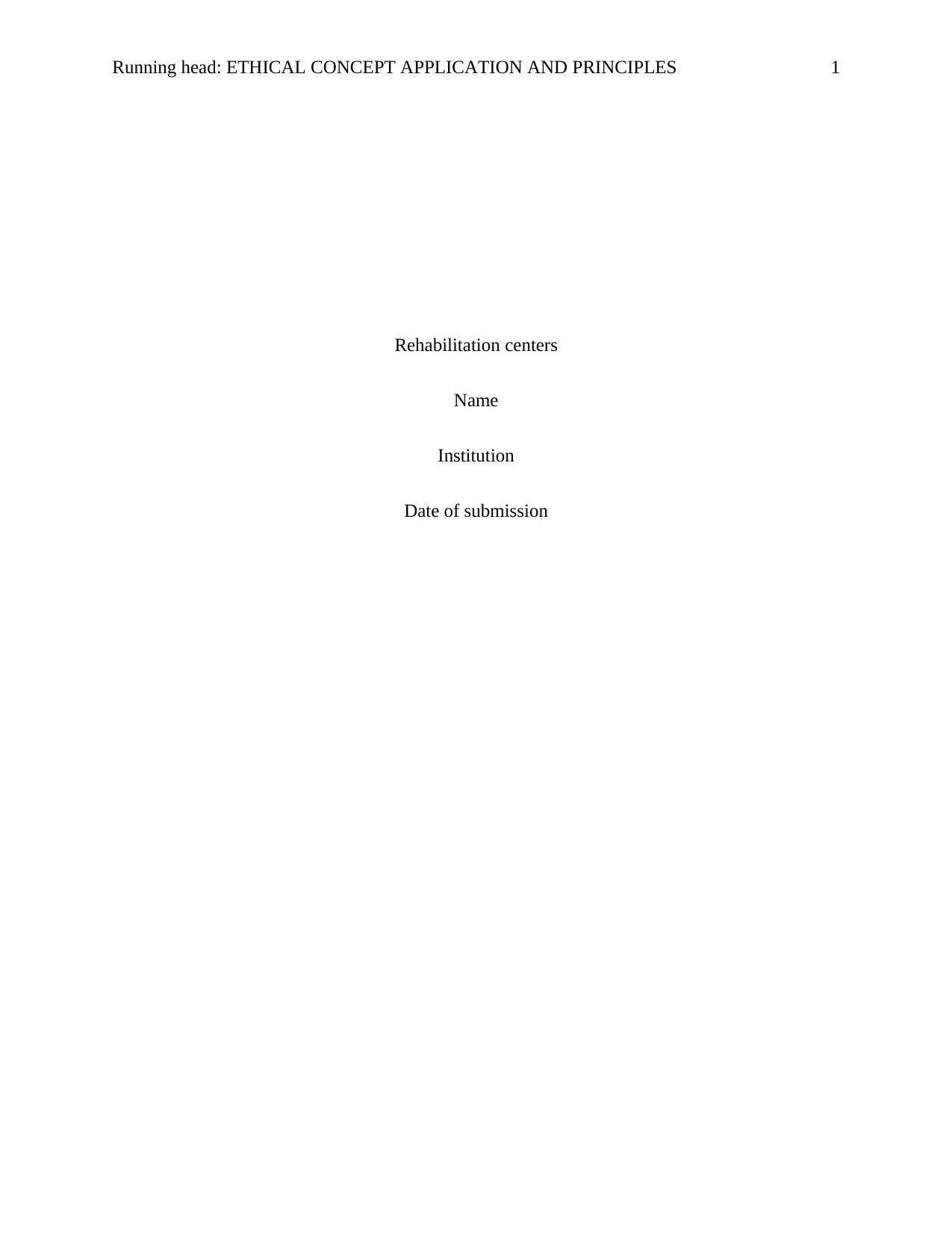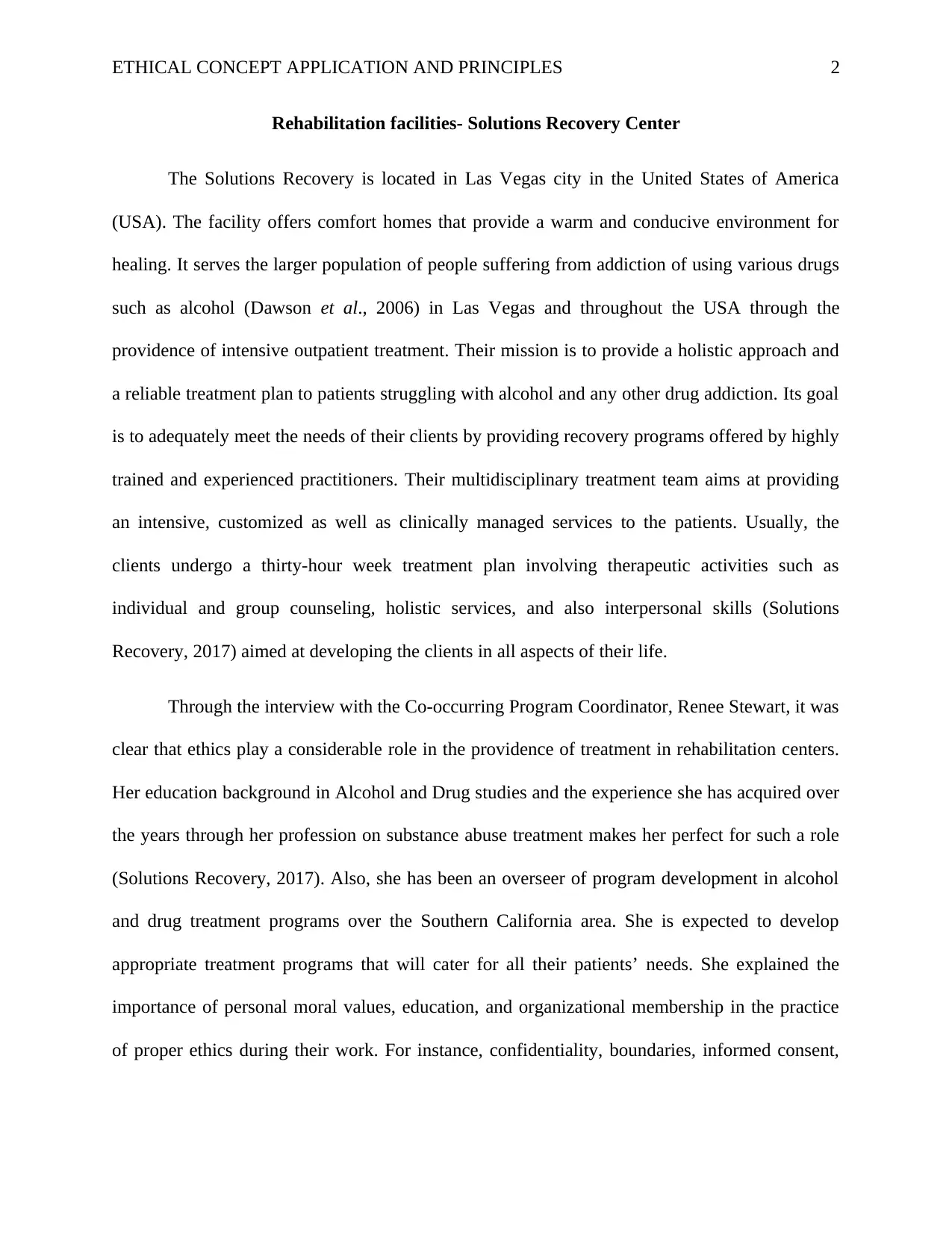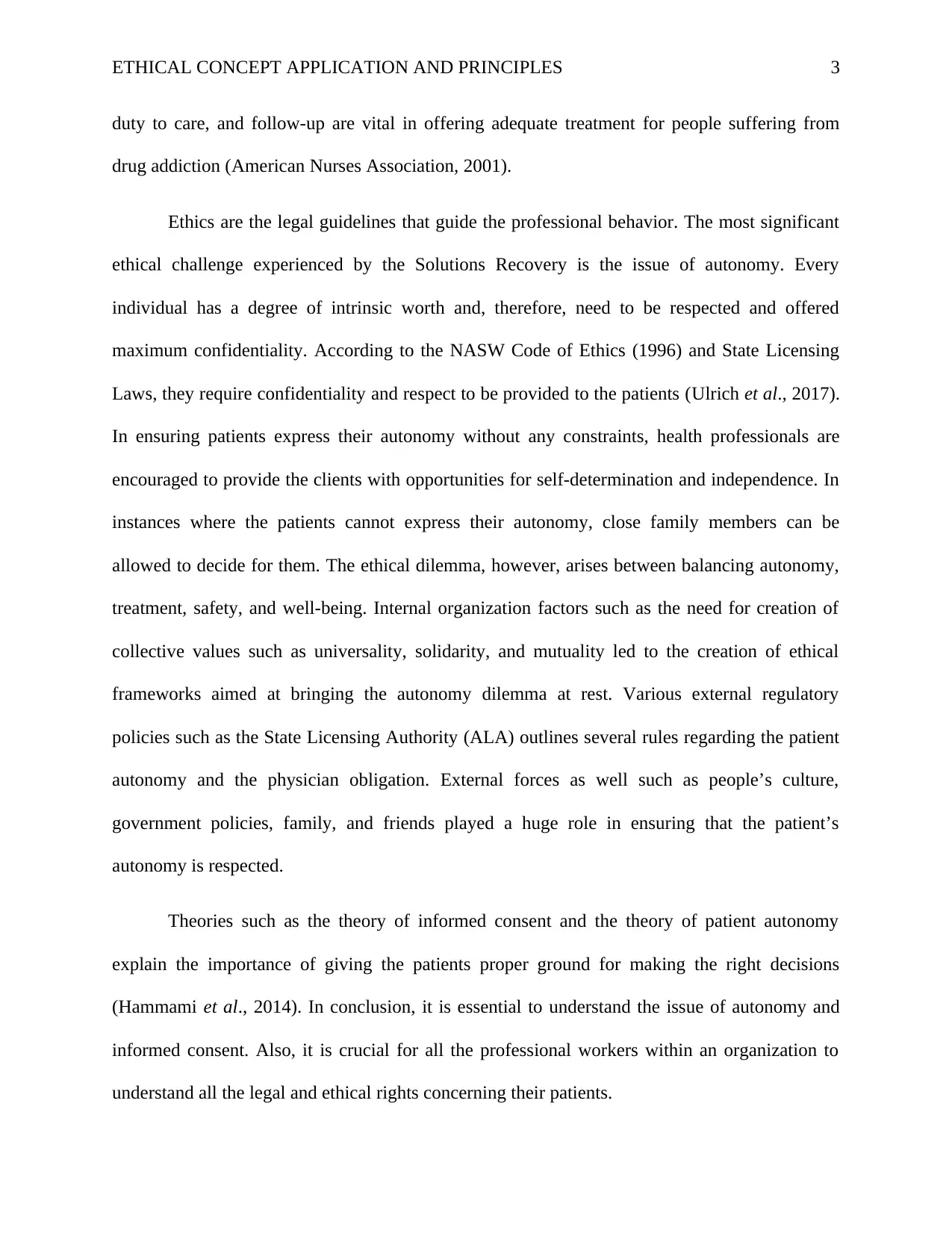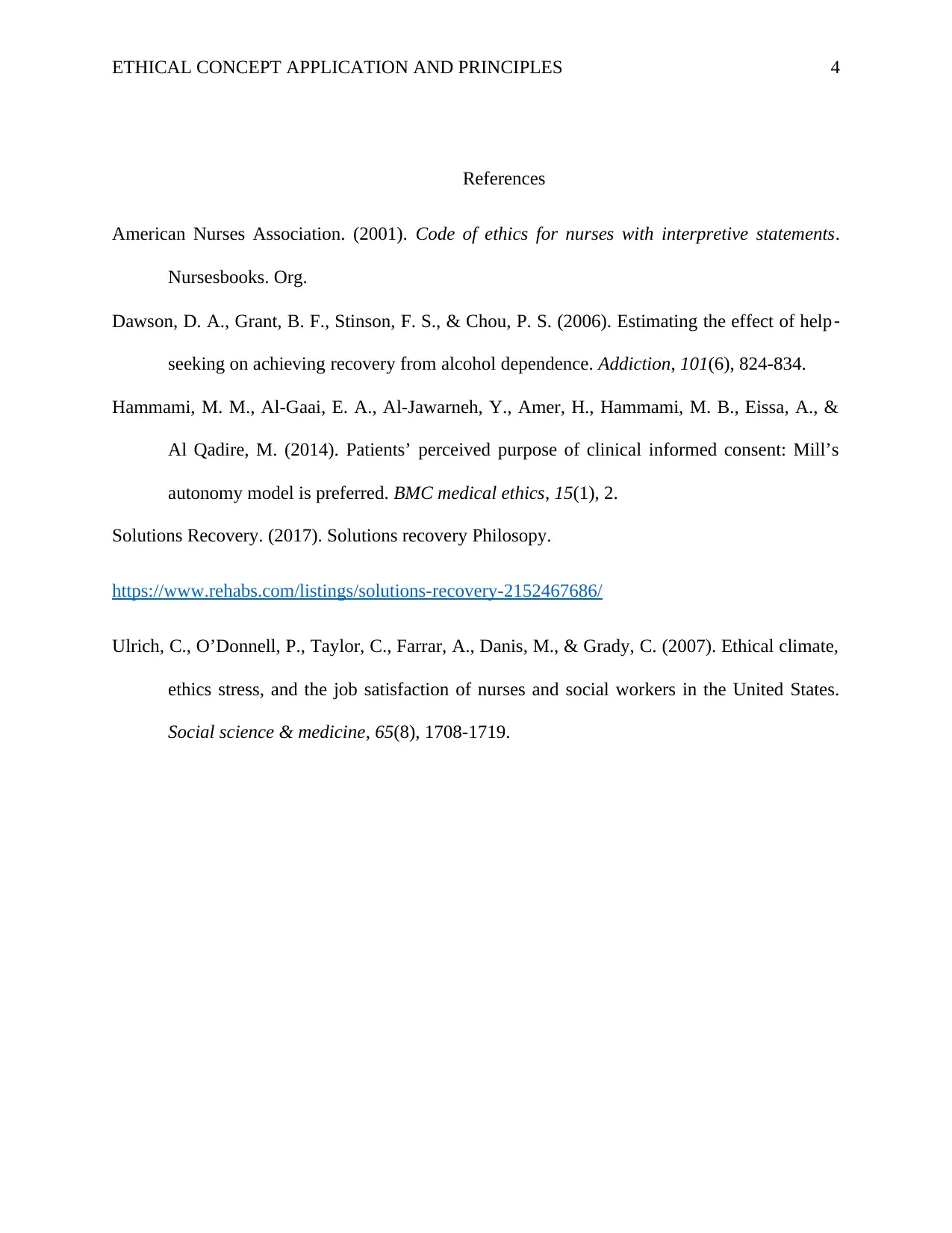Ethical Concept Application and Principles in Rehabilitation Centers
VerifiedAdded on 2021/06/18
|4
|906
|57
Report
AI Summary
This report examines the application of ethical concepts and principles within rehabilitation centers, using Solutions Recovery Center in Las Vegas, USA, as a case study. The report highlights the center's mission to provide holistic addiction treatment and its reliance on a multidisciplinary team. It explores the importance of ethics, including confidentiality, boundaries, informed consent, and duty of care, as emphasized by the Co-occurring Program Coordinator. The central ethical challenge discussed is patient autonomy, balancing it with treatment, safety, and well-being. The report references ethical guidelines such as the NASW Code of Ethics and State Licensing Laws, and discusses internal and external factors influencing ethical practices. Theories of informed consent and patient autonomy are also considered. The report concludes by emphasizing the importance of understanding ethical and legal rights in patient care within rehabilitation settings.
1 out of 4









![[object Object]](/_next/static/media/star-bottom.7253800d.svg)